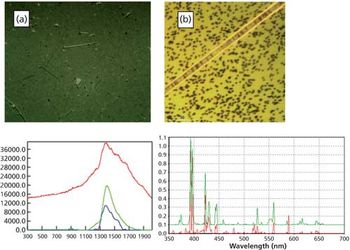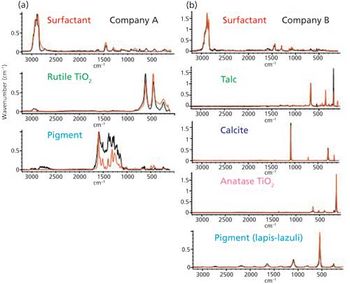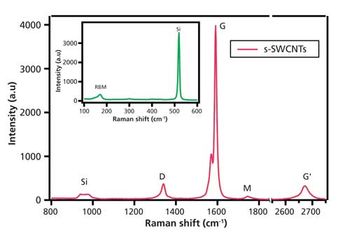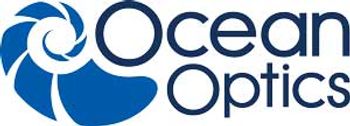
Special Issues
Raman spectroscopy is particularly useful for identification of contaminant materials in pharmaceuticals because it can very clearly and nondestructively identify materials. Raman spectroscopy can be used to identify foreign matter on tablets as well as the individual tablet materials to confirm the material’s legitimacy. For injectable drug vials, Raman spectroscopy can be used with microscopy to count, size, and identify particulate contamination found in such vials. Spectral interpretation is key to the value of Raman spectroscopy, and it is important for accuracy of identification not to simply rely on library match values.





